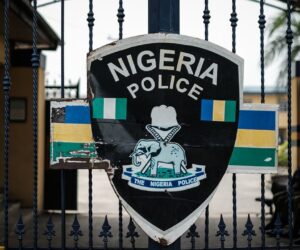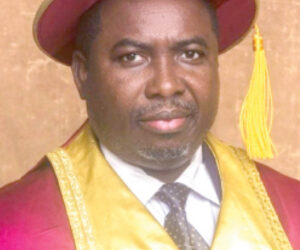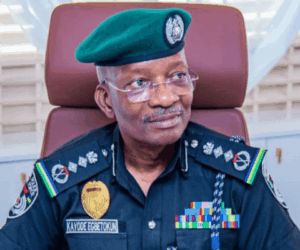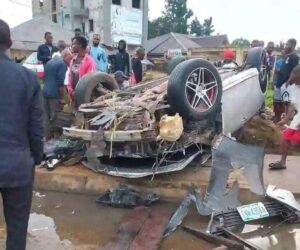-
Amnesty: Abductions threaten education in North
By Baba Martins, Jide Olusola, Idowu Isamotu (Abuja), Ismail Adebayo (Birnin Kebbi), Hassan Ibrahim (Bauchi), Rabilu Abubakar (Gombe) & Abubakar Akote (Minna)
SPONSOR AD
Governor Nasir Idris of Kebbi State has called on the military to change the tactics used in tackling insecurity.
The governor made the call when he received Speaker of the House of Representatives, Abbas Tajudeen, at the Government House, Birnin-Kebbi, on Monday.
The governor also restated his call for the probe of the withdrawal of military personnel deployed to the Government Comprehensive Girls Secondary School, Maga, minutes before bandits dozen of schoolgirls.
“How can over 500 bandits be moving on bikes on our highways without being checked? We are doing our obligations to the security agencies. We provide them with logistics, bought over 100 vehicles for them but their security architecture is not working.
Military’s approach to insecurity not working – Kebbi gov
“If we knew they would leave our girls for the bandits to take away, we wouldn’t have listened to the advice they gave us to deploy security personnel. We would have just shut down the school.
“I think some enemies are working to truncate this government and federal government; and the House must do something, especially about the lingering security situation in the country.
“Yesterday, it was Kebbi, today it is Niger and Kwara; who knows who is next? We must all see to it that this insecurity must be addressed.”
Earlier, Speaker Tajudeen said he and the delegates from the House were in Kebbi to commiserate with its people over the abduction of the schoolgirls and killing of the institution’s head of security.
The Speaker also donated N30 million to the families of the head of security in the school and others.
He said, “We are with you and we will continue to find how to secure the girls.”
Amnesty: Abductions threaten education in North
Meanwhile, Amnesty International Nigeria has issued a warning over the upsurge in kidnappings of schoolchildren across Northern Nigeria, saying it is undermining the foundation of education in the region.
According to Isa Sanusi, Country Director at Amnesty International Nigeria, the impact of these abductions, both the trauma of being taken and the pervasive fear they sow — is driving many children away from schools.
Speaking on Channels Television’s Sunrise Daily, Sanusi observed that rising insecurity is forcing parents to reconsider sending their children to school.
“The trauma that comes with being abducted, or with the fear of being abducted, is going to prevent thousands of children from getting an education completely,” he said. He explained that in many rural areas, families already face economic hardship and make sacrifices so that their children can attend school. Now, with the increasing threat of violence, “education suffers even more setbacks, especially in Northern Nigeria. People will be scared of going to school, and parents will be more sceptical about allowing their children to attend.”
Sanusi expressed concern that this wave of violence could strip an entire generation of its right to learn.
“When added to the more than 12 million children already out of school, the future looks grim and dangerous,” he warned.
There has been an upsurge in attacks on schools as aside the kidnapping of dozens of schoolgirls in Kebbi State, gunmen also abducted students and teachers from St. Mary’s School in Papiri, Niger State.
After a verification exercise and census, church authorities reported that the total number taken is 315, including 303 pupils and 12 teachers. So far, 50 students have been recovered.
In response to the crisis, several state governments have either shut down schools completely or partially. And in some instances, boarding students have been temporarily converted to day students.
More schools shut down
On Monday, Bauchi State added to the number of states that have shut down schools. The state government ordered the immediate closure of primary, secondary, and tertiary institutions — both public and private.
According to Jalaludeen Usman, Public Relations Officer for the State Ministry of Education, the decision followed careful review and consultations given the threats to students, teachers, and school communities.
“The protection of our children remains our highest moral responsibility. Every student in Bauchi State deserves to learn in an environment that is safe, stable, and free of fear.
“We, therefore, call on parents, guardians, school proprietors, and all concerned stakeholders not to panic, but to remain calm and cooperative. The government is working closely with security agencies to address the concerns swiftly and comprehensively, ensuring that normal academic activities resume as soon as it is safe to do so.
“We also urge citizens to remain vigilant. If you see something, say something. Timely information from the public is crucial in safeguarding our communities,” he added.
Tertiary institutions affected in Bauchi are; Abubakar Tafawa Balewa University (ATBU) and the Federal Polytechnic, Bauchi.
Zailani Bappa, Director of Information at ATBU, rejected claims that the school was resisting the closure. Speaking on the development, Bappa dismissed insinuations that the university was not ready to comply with the directive.
According to him, “The directive came at the right time when the university is already on break. Our students are not on campus; they are on holidays and will not return until January 5th, 2026.
“Also, the academic staff commenced their six weeks annual leave on Tuesday, November 18, 2025. This means that both students and staff were already on holiday before the directive came.
“As for our primary and secondary schools which are in session, the principal has already given directives that all pupils and students should go back home today in compliance with the Bauchi State Government directive. This means that they are in full compliance with the directive.”
He also warned rumour mongers to desist from misinformation and always verify issues before posting them via social media platforms.
On his part, the Public Relations Officer of the Federal Polytechnic, Bauchi, Mohammed Rabiu Wada, said that the institution is already on break for the session and will not resume academic activities until January 2026.
Wada said, “The governor is the Chief Security Officer of the state and security of our students and staff is paramount to us. Even if the school had been in session, we would have closed it immediately. The government, in its statement said they are in consultations with security agencies, so we don’t have any reason not to comply.”
Similarly, several private and public schools located within the boundary communities between Niger State and the Federal Capital Territory (FCT) have been shut.
During a visit to Madalla, Zuma Rock area, Dakwa and Sabon Wuse, all in Tafa LGA of Niger State, on Monday, our correspondent observed that the schools were locked.
Dakwa, Madalla and the Zuma Rock axis are rapidly growing settlements in the Dei-Dei district of the FCT, but lie on the boundary between Abuja and Niger State.
Similarly, checks around Garam and other communities near the Bwari Area Council of the FCT, which share boundary with Kagarko LGA of Kaduna State, showed that schools there have been shut.
A teacher in one of the private schools told Daily Trust that most proprietors whose schools are in boundary communities between Abuja and Niger had agreed to comply with the state’s directive.
“Though we are not located in the areas most affected by security challenges, we still have to be proactive and take preventive measures by listening to the authorities.
“We have asked our children to stay at home for now. We are about to start our examinations, so whenever we resume, we will commence immediately,” he said.
On Sunday night, one of the schools sent a notification to parents asking students to pick up their books and study at home.
Part of the notice reads “Dear parents and guardians, following the directive from the Niger State government, we regret to inform you that our school will be closed with immediate effect from 24 November 2025 until further notice. This decision was made after careful consideration of the current security situation. We prioritise the safety and well-being of our students and will communicate updates or resumption dates as soon as possible.”
On its part, the Gombe State Police Command rolled out measures to enhance security in secondary schools across the state after a strategic meeting between the Commissioner of Police, CP Bello Yahaya, and the leadership of the All Confederation of Principals of Secondary Schools (ANCOPSS), Gombe State chapter.
The meeting was held at the police command headquarters in the state. In a statement signed by the Police Public Relations Officer, DSP Buhari Abdullahi, the command said the engagement reviewed existing security structures in schools, particularly those in remote or vulnerable locations and identified areas where improvements are urgently needed.
CP Bello Yahaya reaffirmed the commitment of the Nigeria police force to safeguarding educational institutions, stressing that schools must remain safe and conducive for teaching and learning.
He highlighted the importance of regular security assessment, proactive planning, and sustained collaboration between school administrators, the Ministry of Education, and security agencies.
The commissioner disclosed that the command had intensified patrols, surveillance, and rapid-response initiatives around schools considered most at risk.
He urged school authorities to keep close contact with nearby police divisions and report suspicious activities promptly.
He commended the ANCOPSS leadership for their readiness to cooperate with the police in strengthening school security.
In their remarks, ANCOPSS executives appreciated the command for prioritising the safety of students and staff.
They pledged to work closely with both the police and the Ministry of Education to ensure that security structures in all secondary schools are strengthened.
In Kano State, Governor Abba Yusuf said he had recruited 1,600 watchmen to boost protection in public secondary schools. According to his spokesperson, Sunusi Bature, the move aims to restore discipline and provide constant vigilance on school premises.
In Kaduna State, Daily Trust gathered that authorities are reinforcing the Safe School Policy, which includes risk mapping for schools, engaging local communities, and working closely with security agencies. The policy also mandates evacuation procedures and safety standards, and security patrols have been stepped up around vulnerable schools.
Sokoto State has reaffirmed its earlier decision to house all boarding schools in urban areas, rather than rural areas which are prone to attacks. The Commissioner for Basic and Secondary Education, Prof. Ibrahim Alhassan, said the recent abduction in Kebbi reinforced the need for caution. He noted that plans to return some schools to their original rural sites have been paused.
Unlike many of its neighbours, Zamfara State has refused to shut schools entirely. Instead, the government has deployed additional security measures to fortify learning centres. Wadatau Madawaki, Zamfara’s Commissioner for Education, Science and Technology, told journalists that the state is not abandoning education, but is working to keep schools safe.
US to boost Nigeria’s security with intelligence
Following discussions and engagements last week between a high-level Nigerian delegation and the United States of America officials, the US has affirmed its readiness to deepen security cooperation with Nigeria.
Bayo Onanuga, Special Adviser to the President on Information and Strategy, who disclosed this in a statement on Monday, noted that the engagements will help strengthen security partnerships between the two countries and open new avenues for cooperation to protect citizens.
Following the designation of Nigeria as Country of Particular Concern by the US and the upsurge of attacks and kidnappings, the federal government sent a delegation, led by the National Security Adviser, Mallam Nuhu Ribadu to the United States.
The delegation met with senior officials across the US Congress, the White House Faith Office, the State Department, the National Security Council, and the Department of War.
Onanuga said in all engagements in Washington DC, the Nigerian delegation refuted allegations of genocide in the country, emphasising that violent attacks affect families and communities across religious and ethnic lines.
“The delegation strongly rejected wrongful framing of the situation,” saying such would only divide Nigerians and distort the realities on the ground.
Onanuga said following these engagements, the United States government affirmed its readiness to deepen security cooperation with Nigeria. “This includes enhanced intelligence support, expedited processing of defence equipment requests, and the potential provision of excess defence articles—subject to availability—to reinforce ongoing operations against terrorists and violent extremist groups.
“The United States also expressed its willingness to extend complementary support, including humanitarian assistance to affected populations in the Middle Belt and technical support to strengthen early-warning mechanisms.
“Both countries agreed to implement immediately a non-binding cooperation framework and to establish a Joint Working Group to ensure a unified and coordinated approach to the agreed areas of cooperation.
“In return, the Nigerian delegation reaffirmed the government’s commitment to strengthening civilian protection measures.”
He said the discussions provided ample opportunity to correct misconceptions about Nigeria, forged a constructive, solution-driven partnership with the United States, reinforced mutual trust, and advanced a coordinated approach to protecting vulnerable communities, especially in the Middle Belt.
“The federal government restates its awareness of heightened sensitivities regarding religious freedom and security, and urges citizens to remain assured that firm, urgent, and coordinated steps are being taken to secure the nation”, he said.
Members of the delegation included: Prince Lateef Olasunkanmi Fagbemi, Attorney General of the Federation; General Olufemi Oluyede, Chief of Defence Staff; Lt. Gen. Emmanuel Parker Undiandeye, Chief of Defence Intelligence; Mr. Kayode Egbetokun, Inspector General of Police; Ambassador Ibrahim Babani, Director of Foreign Relations at the Office of the National Security Adviser and Ms. Idayat Hassan, Special Adviser to the NSA.
Niger: Catholic Church releases names of abducted students, staff still in captivity
The Catholic Diocese of Kontagora, Niger State, has released the names pupils, students and staff who are still in captivity. The church had on Sunday said that 50 of the kidnapped children had escaped and reunited with their families.
The Diocesan Secretary, Rev Fr. Jatau Luka Joseph, on Monday said 39 Nursery pupils, 186 primary pupils, 10 Junior Secondary School students, four Senior Secondary School students, five teachers and seven non-academic staff were still in captivity.
A parent, who simply gave his name as Amos, told Daily Trust that they were yet to hear from the abductors of their children.
As a Nigerian living here or in the diaspora, DO YOU HAVE A PLAN B? Just in case anything goes wrong, is there a side business you can fall back on? We show you step by step how you too can start earning US Dollars consistently. Nigerians can now make as much as $20,000 to $35,000 with premium domains. Ideal for business owners, entrepreneurs, and workers.
Click here to find out how it works








